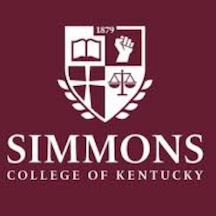 Historically Black Simmons College of Kentucky and the University of Louisville are embarking on a new project to determine what characteristics of a neighborhood contribute to the health of its residents. A $500,000 grant from the Robert Wood Johnson Foundation will fund an 18-month study to identify the features all neighborhoods should have in order to promote the health of all residents.
Historically Black Simmons College of Kentucky and the University of Louisville are embarking on a new project to determine what characteristics of a neighborhood contribute to the health of its residents. A $500,000 grant from the Robert Wood Johnson Foundation will fund an 18-month study to identify the features all neighborhoods should have in order to promote the health of all residents.
The most recent Health Equity Report from the Louisville Metro Department of Public Health and Wellness highlights stark differences in morbidity and mortality of those living in different neighborhoods across the city. For example, in Louisville’s predominantly Black communities, life expectancy is as much as 12.6 years less than in the most affluent, predominantly White communities. Black babies born from 2011-2015 have a death rate 1.95 times higher than the Louisville Metro average and 2.31 times higher than White babies. Diabetes, heart disease and cancer rates vary by location, race, and income.
Researchers from Simmons College and the University of Louisville, along with urban studies expert Michael Emerson of Rice University and legal scholar Shavonnie Carthens of the University of Kentucky, will survey residents of two Louisville neighborhoods, review existing data on environmental factors that affect health and consider legal aspects of neighborhood development, all with the goal of defining a “universal basic neighborhood” (UBN). A universal basic neighborhood is one that has all the necessary community assets that help residents thrive in their place.
 “Neighborhoods, no matter where they are, are not inherently bad or good. They’re just neighborhoods. However, one thing that makes neighborhoods different from each other is access to health-supportive resources,” said Nancy Seay, chair of the department of sociology at Simmons College. “We know that every neighborhood has a rich fabric of local resources that residents access, and we want to uncover these and promote their utilization. Everyone, no matter where they live, wants and deserves to enjoy good health and a long life. This project can be a game changer for the way we think about designing and supporting neighborhoods and their residents.”
“Neighborhoods, no matter where they are, are not inherently bad or good. They’re just neighborhoods. However, one thing that makes neighborhoods different from each other is access to health-supportive resources,” said Nancy Seay, chair of the department of sociology at Simmons College. “We know that every neighborhood has a rich fabric of local resources that residents access, and we want to uncover these and promote their utilization. Everyone, no matter where they live, wants and deserves to enjoy good health and a long life. This project can be a game changer for the way we think about designing and supporting neighborhoods and their residents.”
In the first stage of the project, set to start in September, Dr. Seay will lead work to map assets of Louisville’s Crescent Hill and California neighborhoods. Students in her Participatory Action Research class at Simmons will conduct door-to-door surveys, interviews, and focus groups in those neighborhoods to reveal how residents of those communities find good health, what aspects of their environment they believe contribute to health and how empowered they feel to make changes. They also hope to identify important assets related to the specific interests and culture of those living in the neighborhoods that have not been studied previously. University of Louisville students also may take the class through a reciprocal agreement with Simmons.

